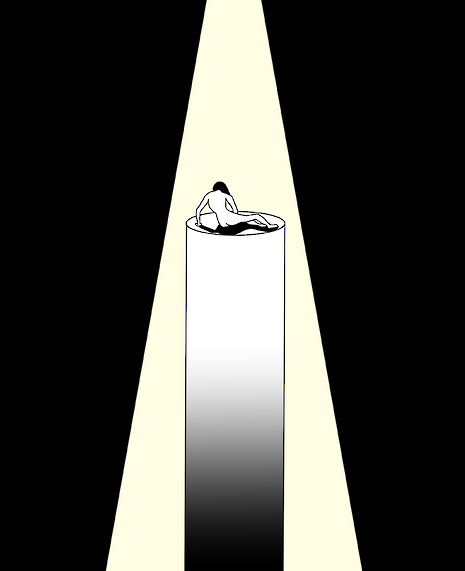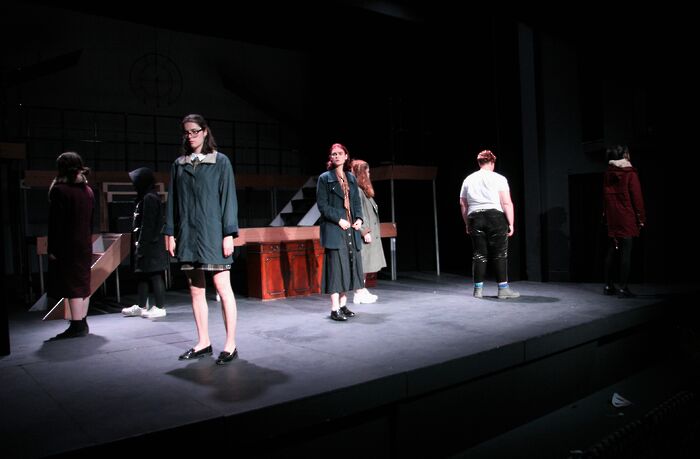My first experience of Cambridge theatre leaves me shaking
An anonymous student describes their harrowing experience with triggering content not treated properly by directors

I was slightly later on the Cambridge theatre scene than a lot of people, auditioning for my first play near to the end of Lent term, and having started to realise how stressful Cambridge could be I thought a play could be a nice escape. I still remember emailing my old drama teacher to tell her that I’d been successful in the audition, although I did have one slight reservation – which was that I hadn’t been offered the part I’d auditioned for, and in fact had been offered the one part I didn’t want – a victim of abuse. It’s worth noting that while I’m writing this I am feeling a completely unanticipated wave of anxiety –given the time that has passed , it says a lot about the effect the whole thing had on me. Anyway – I trusted that the director would be aware that a role that dealt so heavily with abuse had the potential to trigger the actor doing it, and so decided to take the role.
Subsequent character chats I’ve had have been pretty short – but this one lasted about an hour and was in a rehearsal room. In it, I hinted as best I could that I was uncomfortable with the theme of abuse. I wouldn’t avoid it altogether and would still do the best performance I could – but as someone with a history of abuse in childhood, I didn’t want to spend the best part of three weeks replaying that. My hints went unnoticed – or were ignored, and I was pushed to talk about things that I haven’t spoken to my closest friends about. It was about a week into the rehearsal process that I found out another cast member had a very similar experience.
Realistically, I should have quit at this point – and I did seriously consider it. But as a fresher with a genuine passion for theatre I felt it would really be a waste of an opportunity to drop out. Besides – at that point I was unwilling to admit to myself the amount that this process was affecting my mental health. I had undergone a large amount of therapy and considered myself “recovered” – admitting that I couldn’t stick out one play seemed like I wasn’t as okay as I thought.
It’s worth remembering that this was my first play also – I thought this was the norm for Cambridge, and knew that other plays had triggering content. If the other actors could deal with it, then I reasoned I should be able to. I was either unable or unwilling to make the connection that within a week of this play beginning rehearsals I had signed up to sessions with the college counsellor.
"at that point I was unwilling to admit to myself the amount that this process was affecting my mental health"
Later experiences of the theatre proved to me that I am, actually, very capable of dealing with triggering content – if the director is sensitive to it also. But the rehearsal process followed on in tone from the character chat – and for some reason it was deemed necessary to ask a predominantly fresher cast to method act the roles. I don’t know why I never thought about how utterly inappropriate it was to ask me to method act things that were triggering – but I didn’t. I did what I was told, and I participated in several half hour to hour long improvs to help “get into character”.
I felt the rise of anxiety and shame that I associated with my real life – and I got praised for how it improved my acting. It’s something difficult to fully get across – but there are certain songs that I struggle to listen to because they remind me of certain experiences. Being asked to go through the motions of someone who has been abused – to act out what hadn’t been an act became a regular element of my week. At times when I withdrew and attempted to detach from the process I, along with other cast members, got told that it seemed I was “faking it”.
I have done other plays with similarly triggering content – because there’s never been any idea that I would have to method or improv the role, I’ve been able to detach and understand that I am not my character. Here, that wasn’t an option. I had rehearsals after which I would go home and have a panic attack, rehearsals that left me with trauma memories so strong that I was unable to use any of the skills I had learnt in therapy. None of this was unnoticeable to the director. I was clearly uncomfortable at points – other cast members would ask if I was okay. We would improv scenes of bullying, scenes where the abuse of my character was key, and from that emotionally exhausting point we would go into a scripted scene.
Yes I could of and should have spoken out explicitly. My friends often comment on the fact that I didn’t. But many of you reading this will remember how it felt to do your first play. The fear that you’d mess it up. The belief that the director was some kind of genuine authority, rather than just another student muddling through. The reliance on the director to show you what Cambridge theatre was like. Those things meant that I was perhaps too trusting – I believed that my reaction was due to my own weakness.
I only did a few plays after that – I avoid most with triggering content now just in case it happens again. I did enjoy parts of it – I made great friends with the rest of the cast, and acting will always have pleasure for me. But I shouldn’t be shaking as I recall the experience of my first play at Cambridge.
 News / University Council rescinds University Centre membership20 February 2026
News / University Council rescinds University Centre membership20 February 2026 News / Hundreds of Cambridge academics demand vote on fate of vet course20 February 2026
News / Hundreds of Cambridge academics demand vote on fate of vet course20 February 2026 News / Judge Business School advisor resigns over Epstein and Andrew links18 February 2026
News / Judge Business School advisor resigns over Epstein and Andrew links18 February 2026 News / Caius students fail to pass Pride flag proposal20 February 2026
News / Caius students fail to pass Pride flag proposal20 February 2026 News / Union cancels event with Sri Lankan politician after Tamil societies express ‘profound outrage’20 February 2026
News / Union cancels event with Sri Lankan politician after Tamil societies express ‘profound outrage’20 February 2026










